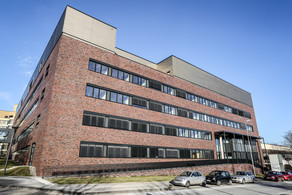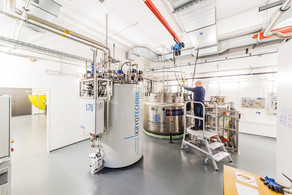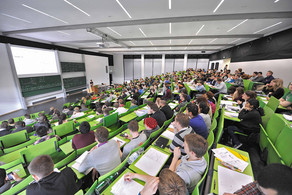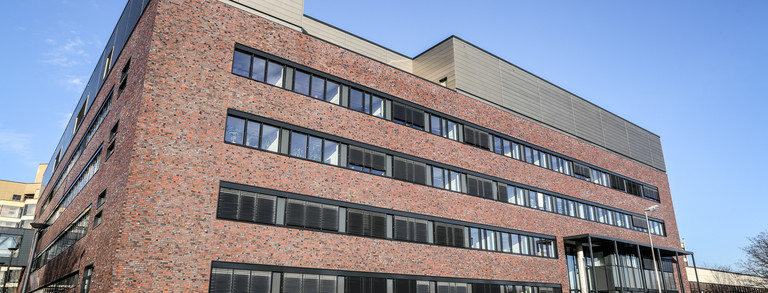Thesis defense of Jan Oliver Böker
- Defense
We present an approach for quantum impurity systems that extends the numerical renormalization group (NRG) to an open quantum system formulation. The continuous conduction band is divided into an arbitrary Wilson chain and a set of reservoirs without affecting the local bath hybridization function. One reservoir is coupled to each chain site and is treated by the Bloch-Redfield formalism (BRF), which includes the Born-Markov approximation (BMA). This open chain formalism (OCF) yields true thermalization in local real-time non-equilibrium dynamics, as well as finite lifetime in local equilibrium spectral functions. It reproduces the t → ∞ steady-state predicted by the NRG and the correct relaxation rates in the resonant level model. By enlarging the Wilson chain, the accuracy of the BMA, especially with respect to short-time dynamics, is increased. The formation of Hubbard-peaks and the Kondo-resonance are reproduced for the single-impurity Anderson model. The BMA in second order results in the persistence of finite-size oscillations to some degree, which can be damped by the well-established procedure of z-averaging. We find the BRF to be inadequate for interacting models, if the local Coulomb repulsion exceeds the conduction bandwidth, and discuss several options to improve the OCF for this parameter regime. Since the motivation for this thesis is of pure methodological nature, we restrict to the most simple quantum impurity models to benchmark our algorithm. However, the OCF is as versatilely applicable to more complex models as the pure NRG. Consequently, our approach can be adapted to e.g. multi-impurity models, as well as simulate local transport properties in and out of equilibrium.








